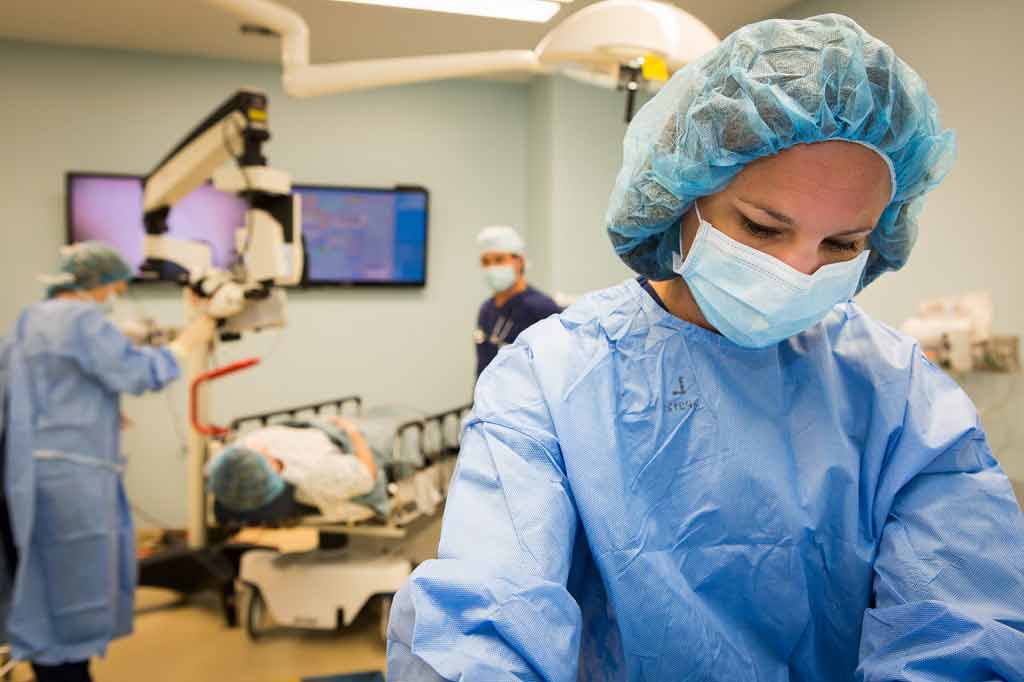Heart transplant
Introduction

A heart transplant is an operation to replace a damaged or failing heart with a healthy heart from a donor who has recently died.
It may be recommended when a person's life is at risk because their heart no longer works effectively.
Why heart transplants are carried out
A heart transplant may be considered if you have severe heart failure and medical treatments aren't helping.
Conditions that may eventually require a heart transplant include:
- coronary heart disease a build-up of fatty substances in the arteries supplying the heart, which block or interrupt blood flow to the heart
- cardiomyopathy where the walls of the heart have become stretched, thickened or stiff
- congenital heart disease birth defects that affect the normal workings of the heart
If your doctor thinks you might benefit from a heart transplant, you'll need to have an in-depth assessment to check whether you're healthy enough to have one before being placed on awaiting list.
A cut is made in the middle of the chest. Your own heart is then removed, and the donor heart is connected to the main arteries and veins. The new heart should then begin beating normally.
Most people are able to start returning to many of their normal activities within a few months.
Your transplant team can give you advice about how long you may need to avoid certain activities during your recovery.
You'll need to have regular check-ups with your transplant team after the transplant.
You'll also need to take medications called immunosuppressants for the rest of your life. Without these medicines, your body may recognise your new heart as foreign and attack it (known as rejection).
.
Risks of a heart transplant
A heart transplant is a complex and risky procedure.
Possible complications include:
- the immune system recognising the transplanted heart as foreign and attacking it (rejection)
- the donated heart fails to work properly (graft failure)
- narrowing of the arteries supplying the heart (cardiac allograft vasculopathy)
- side effects from the immunosuppressant medication, such as an increased vulnerability to infections, weight gain and kidney problems
Many of these problems are treatable, although sometimes another heart transplant may need to be carried out if possible.
Outlook for heart transplants
Most people can eventually return to their normal activities after a heart transplant and experience a significant improvement in their symptoms for many years.
However, it'sa major operation and some of the complications can be life threatening.
Overall:
- 80-90 in every 100 people will live at least a year
- 70-75 in every 100 people will live at least five years
- 50 inevery 100 people will live at least 10years
Some people have survived for more than 25 years after a heart transplant.
Introduction
A heart transplant is an operation to replace a damaged or failing heart with a healthy heart from a donor who has recently died. It may be recommended when a person's life is at risk because their heart no longer works effectively.
Who is suitable for a heart transplant
As donor hearts are scarce, you'll need to be assessed carefully to determine whether a heart transplant is suitable, if your doctor thinks you could benefit from one. The final decision about whether you are suitable for a heart transplant is a joint decision made by the transplant team.
Waiting list
Because of the lack of available hearts, it's rarely possible to have a heart transplant as soon as it's needed, so you'll usually be placed on a waiting list. It may be several months, or possibly years, before a donor heart of the right size and blood groups becomes available.
How is heart transplant carried out
A heart transplant is carried out with you unconscious under general anaesthetic , and normally takes between four and six hours. You'll be connected to a heart-lung bypass machine, which will take over the functions of the heart and lungs while the transplant is being carried out.
Recover from a heart transplant
Read about what you can expect after a heart transplant and when you can return to your normal activities.
Risks
A heart transplant is a major operation, and there is a risk of several complications. Some complications can occur soon after the procedure, while others may develop months or even years later.
Patient story: "I returned to work as a gardener 13 weeks after the transplant."
In 1998, Andy Cook was told he had just two days to live. But when a donor heart became available, a transplant saved his life. Bit by bit, Andy regained his strength, but his journey back to health had some setbacks.







 Subscribe
Subscribe Ask the doctor
Ask the doctor Rate this article
Rate this article Find products
Find products